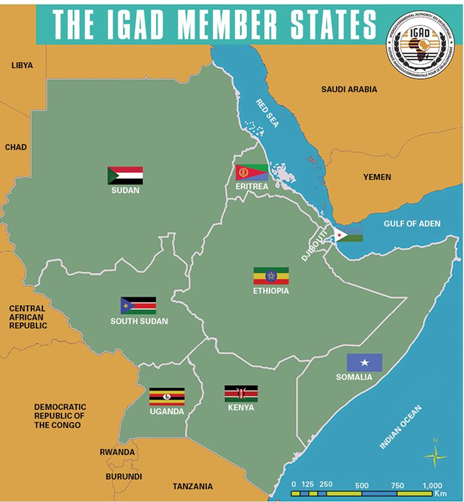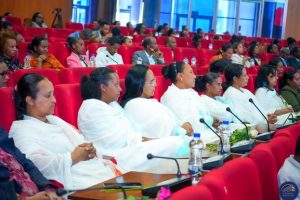
Since the commencement of the 79th United Nations General Assembly high-level meeting in New York on September 10, Ethiopian Foreign Minister Ambassador Taye Atske-Selassie has held several diplomatic meetings with key officials from countries significantly involved in the geopolitical dynamics of the Horn of Africa (HoA). During these discussions, he highlighted Ethiopia’s ongoing efforts to manage regional disputes and its willingness to engage in peaceful negotiations, despite external interference.
A central theme in these meetings was Ethiopia’s desire to resume the stalled negotiations with Somalia, which were paused due to Somali reluctance. While meeting with Catherine Molly Phee, the Assistant Secretary for African Affairs at the U.S. State Department, Foreign Minister Taye emphasized Ethiopia’s dedication to fighting terrorism, particularly in Somalia, where the terrorist group Al-Shabaab remains a significant threat. According to a statement from Ethiopia’s Ministry of Foreign Affairs, the minister stressed the importance of carefully considering future peacekeeping arrangements in the region after the African Union Transition Mission in Somalia (ATMIS) ends.
Similar discussions were held with diplomats from China, South Sudan, Algeria, and the United Nations, where Ambassador Taye underscored Ethiopia’s priorities: maintaining regional stability while pursuing diplomatic negotiations. Despite these efforts, the Somali government, reportedly influenced by external anti-Ethiopian forces, officially suspended talks and has since issued military threats, further destabilizing the region.
Roba Petros (PhD), a lawyer, pointed out that Ethiopia’s foreign policy reflects the African proverb, “If you want to go fast, go alone; if you want to go far, go together.” He argued that the disputes between Ethiopia and Somalia could be resolved through mutual consensus, but external actors are exacerbating tensions, potentially expanding terrorism in the region. He emphasized that Ethiopia has a strong track record in regional security and is not responsible for the current tensions, which he attributes to outside influences.
The expert also commented on the post- ATMIS peacekeeping arrangement, noting that Somalia was expected to support Ethiopia’s presence in future delegations. However, growing anti-Ethiopian sentiment in Somalia, fueled by external forces, threatens to undermine these efforts. He warned that while Somalia is receiving military aid from foreign powers, the ultimate beneficiary might be Al-Shabaab, as historical precedents suggest.
Eyasu Haile Michael, a scholar in political science and international relations, agreed with Petros’ concerns. He noted that allies engaging in destructive missions are not true friends, highlighting the detrimental impact external forces have on regional stability.
The situation has raised alarm in Somaliland as well, which expressed concern over foreign powers deploying forces and supplying arms to Mogadishu. On September 23, Somaliland’s foreign minister issued a statement condemning the recent supply of heavy weapons to Somalia, warning that it jeopardizes the security of the entire region, which is already grappling with complex security challenges.
Political experts agree that the post- ATMIS peacekeeping arrangement and the involvement of external actors will significantly influence the future dynamics of the relationship between Ethiopia and Somalia.
BY YESUF ENDRIS
THE ETHIOPIAN HERALD THURSDAY 26 SEPTEMBER 2024





